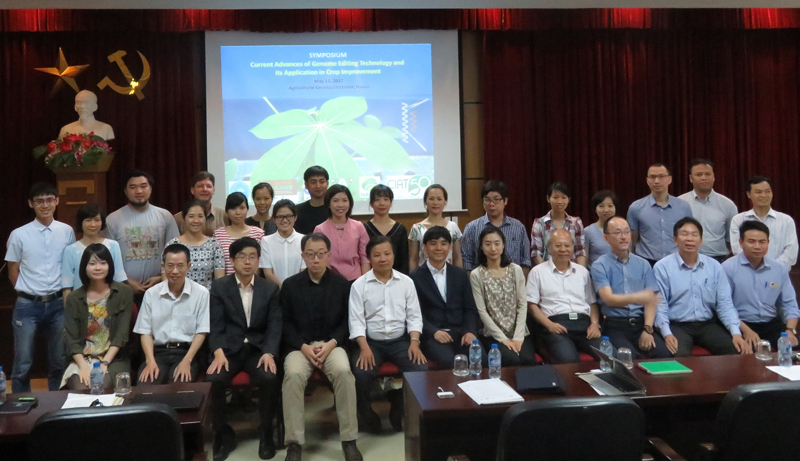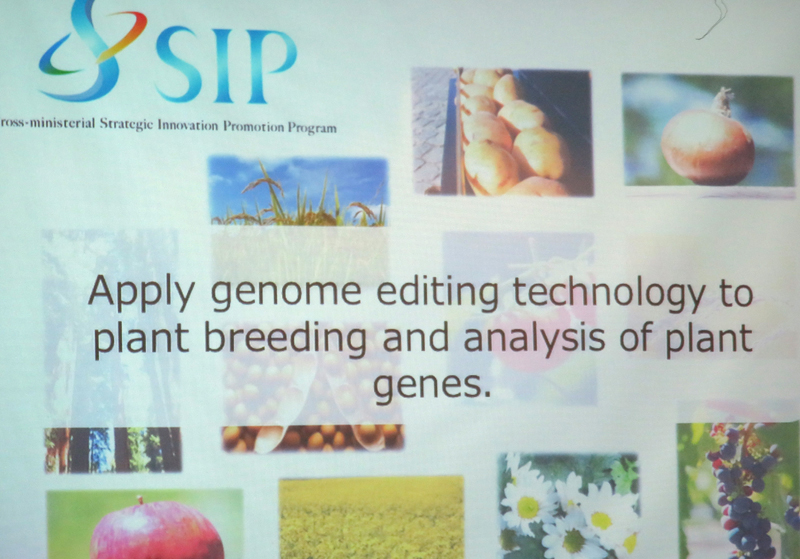Current Advances of Genome Editing Technology and its Application in Crop Improvement
02/06/2017
The Institute of Agricultural Genetics (AGI), a joint laboratory of AGI, International Center for tropical Agriculture (CIAT) and RIKEN Center for Sustainable Resource Science (RIKEN CSRS) hosted the symposium on Current Advances of Genome Editing Technology and its Application in crop improvement on May 12, 2017 in Hanoi.
The participants were comprised of Prof. Le Huy Ham, Director General of AGI, Dr. Hiroyuki Tsuji of Yokohama City University (YCU), Japan, Drs. Masaki Endo and Seiichi Toki at NARO, Dr. Seki of RIKEN, Japan and the scientists from Institutions and Universities of Vietnam.
The participants were comprised of Prof. Le Huy Ham, Director General of AGI, Dr. Hiroyuki Tsuji of Yokohama City University (YCU), Japan, Drs. Masaki Endo and Seiichi Toki at NARO, Dr. Seki of RIKEN, Japan and the scientists from Institutions and Universities of Vietnam.

The presentations revealed the tremendous potential and promise of Genome Editing technology as an advancement in plant breeding. Japanese scientists were briefed about the project on Toward the improvement of genome editing techniques and establishment of research network; Current advances in genome editing technology in Japan; Overview of RIKEN Cassava Project and Application of Genome Editing Technology to Cassava Research; Molecular function of florigen and florigen genes in cassava; Status and challenge of cassava transformation research in Vietnam; Genome editing in rice – current status and future perspective.

The challenges and future perspective of genome editing technology in Vietnam were discussed by the Principal Scientist of Vietnam and Japan
In fact, new technologies included genome editing are being used increasingly in research and development of new crop varieties, and are moving towards commercialization, next generation of biotech crop as the commercial product of CRISPR-Cas will be introduced by the end of this decade.
In fact, new technologies included genome editing are being used increasingly in research and development of new crop varieties, and are moving towards commercialization, next generation of biotech crop as the commercial product of CRISPR-Cas will be introduced by the end of this decade.


